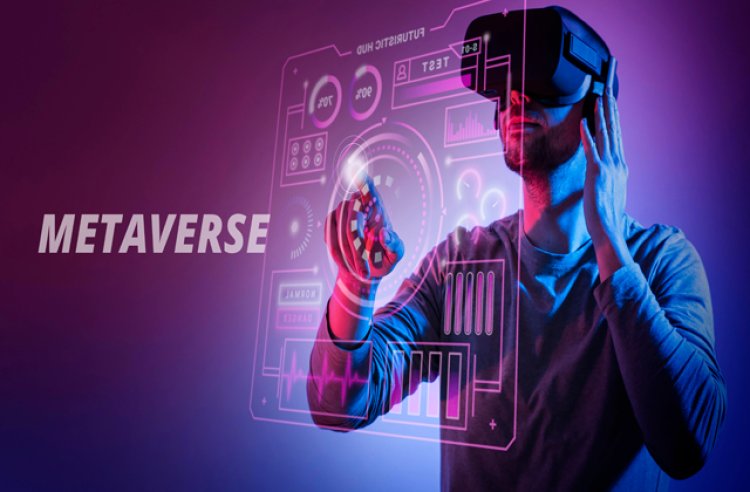The Role of Metaverses in Educational and Corporate Platforms: A New Era
Discover how metaverse technologies revolutionize education and corporate platforms, offering immersive learning and workspaces. Explore their potential in 2025.
Share this Post to earn Money ( Upto ₹100 per 1000 Views )

Metaverse technologies have become central to innovation in education and corporate environments. By 2025, these virtual spaces are transitioning from futuristic concepts to practical tools reshaping learning, work, and collaboration methods.
Education and the Metaverse: A Transformative Experience
Metaverses enhance learning by making it immersive and interactive. Virtual spaces enable students to explore historical events, study complex scientific concepts using 3D simulations, or conduct experiments in lifelike environments. This level of engagement not only improves knowledge retention but also makes education accessible to students with diverse needs, including those with physical limitations.
By integrating artificial intelligence, these platforms can personalize learning experiences, catering to individual paces and interests. This adaptability is a significant shift from traditional teaching methods, bridging the gap between theoretical knowledge and practical application.
Corporate Platforms: Reinventing the Workspace
In the corporate world, metaverses address global collaboration challenges. Virtual offices replace conventional video meetings, offering environments that foster brainstorming sessions, team-building activities, and comprehensive training programs.
Metaverse-based onboarding programs allow new employees to immerse themselves in simulated workflows, experience the company culture, and integrate seamlessly into teams. This not only improves engagement but also saves resources traditionally spent on in-person orientation.
Challenges and Future Prospects
While promising, metaverses face hurdles such as the need for advanced infrastructure and concerns over data privacy. Access to reliable high-speed internet and powerful hardware remains a barrier for underdeveloped regions. Furthermore, safeguarding user data in such immersive platforms demands stringent measures.
Despite these challenges, the progress in making metaverses more secure and inclusive continues at a rapid pace. With ongoing advancements, the potential applications of metaverses in education and corporate sectors are expected to grow exponentially by 2025.
Conclusion
Metaverses are reshaping how we perceive learning and work, breaking down the barriers between physical and digital spaces. By 2025, their role in creating innovative, efficient, and accessible environments will only strengthen, setting the stage for a new era of interaction with digital technologies.














